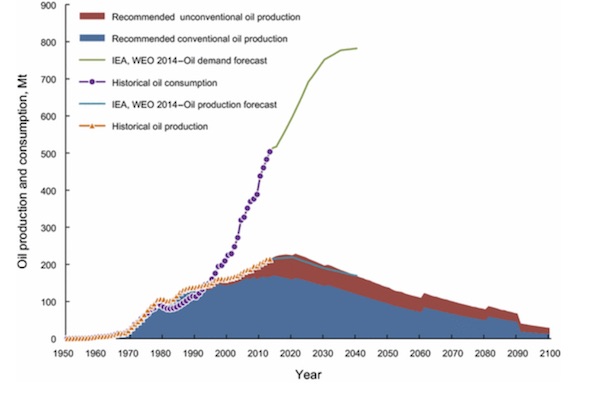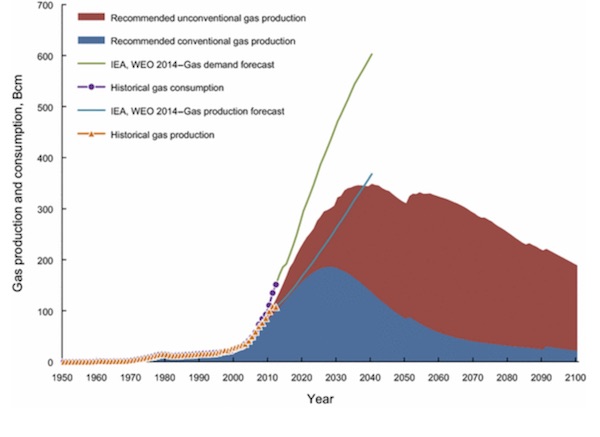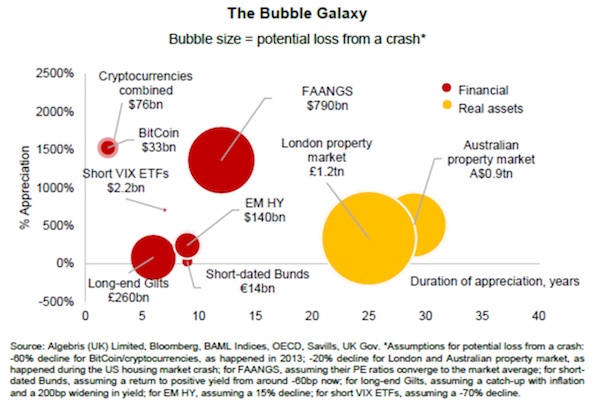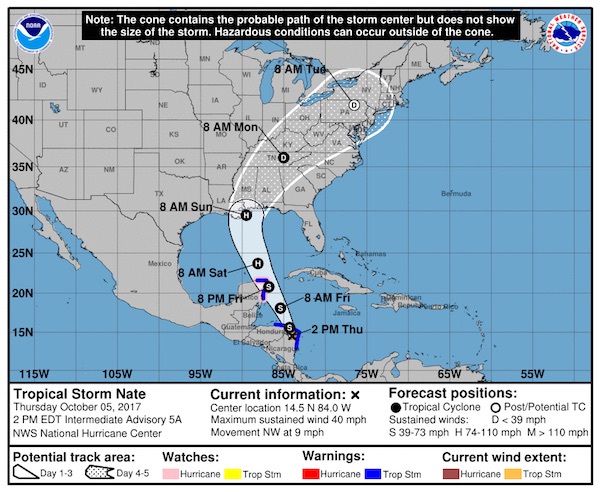
Jean Renoir Les Grands Boulevards 1875

From China’s government.
• China’s Economic Boom Is About To Be Cut Short By Peak Oil (Ahmed)
A new scientific study led by the China University of Petroleum in Beijing, funded by the Chinese government, concludes that China is about to experience a peak in its total oil production as early as next year. Without finding an alternative source of ‘new abundant energy resources’ , the study warns, the 2018 peak in China’s combined conventional and unconventional oil will undermine continuing economic growth and ‘challenge the sustainable development of Chinese society’. This also has major implications for the prospect of a 2018 oil squeeze – as China scales its domestic oil peak, rising demand will impact world oil markets in a way most forecasters aren’t anticipating, contributing to a potential supply squeeze. That could happen in 2018 proper, or in the early years that follow.
There are various scenarios that follow from here – China could: shift to reducing its massive demand for energy, a tall order in itself given population growth projections and rising consumption; accelerate a renewable energy transition; or militarise the South China Sea for more deepwater oil and gas. Right now, China appears to be incoherently pursuing all three strategies, with varying rates of success. But one thing is clear – China’s decisions on how it addresses its coming post-peak future will impact regional and global political and energy security for the foreseeable future. The study was published on 19 September by Springer’s peer-reviewed Petroleum Science journal, which is supported by China’s three major oil corporations, the China National Petroleum Corporation (CNPC), China Petroleum Corporation (Sinopec), and China National Offshore Oil Corporation (CNOOC).

Since 1978, China has experienced an average annual economic growth rate of 9.8%, and is now the world’s second largest economy after the United States. The new study points out, however, that this economic growth has been enabled by “high energy consumption.” In the same period of meteoric economic growth, China’s total energy consumption has grown on average by 5.8% annually, mostly from fossil fuels. In 2014, oil, gas and coal accounted for fully 90% of China’s total energy consumption, with the remainder supplied from renewable energy sources. After 2018, however, China’s oil production is predicted to begin declining, and the widening supply-demand gap could endanger both China’s energy security and continued economic growth.


“Zombie companies that would otherwise fail continue to be in business, refinancing at near-zero interest rates in bond markets.”
• A Volatility Trap Is Inflating Market Bubbles (BBG)
A number of markets show not only elevated valuations, but also irrational behavior on the part of investors, including a suspension of traditional valuation models, an increase in trading volumes or “flipping” in the hopes of quick gains, and financial engineering. Potential bubbles can be found in emerging-market debt, technology stocks, U.S. high yield bonds, some sovereign debt, cryptocurrencies, properties — even art and collectibles. It is becoming clearer to economists and central bankers that even though we may be experiencing a long phase of growth, stretching the cycle with monetary stimulus inspired by crisis-era toolkits may be bringing several collateral effects. These include not only asset bubbles, but also a worsening of wealth inequality and a misallocation of resources.
Persistent low interest rates in the past have helped to roll forward an increasing amount of private and public debt to future generations, but this is no longer working. Economic fundamentals are different from the post-war period. Technology is deflationary. Demographics are no longer a tailwind, as there are fewer young people able to carry a higher debt burden in the future. The generation of so-called millennials is the first that will likely be poorer than their parents in the post-war period. Productivity is low as the economy suffers from hysteresis: a financial boom-bust cycle that can leave large swathes of the workforce out of the job market. The longer the debt cycle, the longer companies and workers develop business and skills in leverage-heavy sectors (e.g. finance, real estate, energy), the deeper the scars when the bust comes.
Often the misallocation is so large that low rates are necessary to keep people in their jobs: Zombie companies that would otherwise fail continue to be in business, refinancing at near-zero interest rates in bond markets.


Xi will need drastic measures to tackle the debt disaster. But it may well be too late already.
• China Is In ‘Lock-down’ Ahead Of Its Most Important Meeting In Years (CNBC)
Although the Chinese will head back to work and school on Monday, their country is expected to remain in a holding pattern ahead of a pivotal Communist Party Congress set to start later this month. “Commentators and markets rightly assume that the authorities are consumed by this transition and that all other policy matters are on the back-burner or in lock-down until after the Congress,” Freya Beamish, Pantheon Macroeconomics’ chief Asia economist, wrote in a recent note. The once-in-five-years meeting will usher in leadership changes that are likely to see incumbent President Xi Jinping extend his term and consolidate power. The coming years of Xi rule will be critical for the world’s second-largest economy as it grapples with the fallout from three decades of unbridled growth.
As Xi — the most powerful Chinese leader in decades — embarks on a new era, the meeting will review “faulty” outcomes from the economic reforms and review if China needs a new direction, said independent economist, Andy Xie. China undertook a series of market reforms in the last three decades that propelled the Communist country to the spot of the world’s second largest economy. Market watchers, however, are concerned about the nation’s debt-fueled growth, industrial overcapacity and capital outflows that may potentially spur a global economic crisis. The Communist Party has been working to steer outbound merger and acquisition activities over the last year, but major initiatives have slowed ahead of the Congress. That push is likely to pick up again in the fourth quarter, said Chunshek Chan, Dealogic’s global M&A research head.
No matter the macroeconomic concerns, the only thing on Beijing’s mind at this time is consolidating power in the country, Xie said: “It’s much more important now to strengthen the control of the Communist Party than anything else.” “The key is to have the Communist Party as a coherent organization to control everything in the society — that seems to be the case. The people at the top worry about the stability. Stability is always number one in China,” added Xie.

“What are they going to do if bitcoin drops for a given client and they’ve given that client a ton of leverage on margin, and that client only has assets in bitcoin?”
• Bitcoin’s Rise Happened in Shadows of Finance. Now Banks Want In (BBG)
At first, bitcoin was a way to make payments without banks. Now, with more than $100 billion stashed in digital currencies, banks are debating whether and how to get in on the action. Goldman Sachs CEO Lloyd Blankfein tweeted Tuesday that his firm is examining the cryptocurrency. Other global investment banks are looking into facilitating trades of bitcoin and other cryptocurrencies, according to industry consultants. Bitcoin has surged more than 300 percent this year, drawing the attention of hedge funds and wealthy individuals. “They’re clearly receiving interest from their clients, both from retail investors and on the institutional side,” said Axel Pierron, managing director of bank consultant Opimas. “It’s highly volatile, it’s highly illiquid when you need to trade large volumes, so they see the opportunity for a new asset class which would require the capability of a broker-dealer.”
But bitcoin presents Wall Street with a conundrum: How do banks that are required by law to prevent money-laundering handle a currency that’s not issued by a government and that keeps its users anonymous? The debate has played out in the open recently, with JPMorgan CEO Jamie Dimon and BlackRock CEO Larry Fink saying that bitcoin was mostly used by criminals, while Morgan Stanley chief James Gorman took a more measured stance, saying it was “more than just a fad.” On Wednesday, UBS Chairman Axel Weber, a former president of Germany’s central bank, said he was skeptical about bitcoin’s future because “it’s not secured by underlying assets.” There’s even tension within some banks. On the same day Dimon trashed bitcoin, calling it a “fraud,” his firm’s private bank hosted a panel stocked with cryptocurrency investors.
Handling bitcoin would invite scrutiny from every major U.S. regulator, according to Joshua Satten, director of emerging technologies at Sapient Consulting. “From the perspective of the U.S. Treasury, do you classify it as an asset class or a currency?” Satten said. “If banks are starting to manage and hold bitcoin for their clients, you would have the OCC and the FDIC looking at how they classify the assets on their balance sheet and how they state the assets for the portfolio of a client.” And banks need to avoid antagonizing governments that are increasingly concerned about this area. For instance, China is cracking down by shutting cryptocurrency exchanges. Then there’s the risk that stems from its high volatility and lack of correlation to other major assets. “What are they going to do if bitcoin drops for a given client and they’ve given that client a ton of leverage on margin, and that client only has assets in bitcoin?” Satten said.

Greed.
• HSBC Traders Used Code Words to Trigger Front-Running (BBG)
A group of HSBC currency traders in London and New York feverishly jumped ahead of a $3.5 billion client order after they were tipped off using the code words “my watch is off,” a U.S. prosecutor told a federal judge. The buying frenzy was launched after Mark Johnson, HSBC’s former global head of foreign exchange who the bank chose to lead the transaction, alerted the traders via phone call that was recorded, the prosecutor said Thursday in Brooklyn, New York. Johnson is on trial for fraud. After the trial recessed for the day, prosecutor Carol Sipperly told U.S. District Judge Nicholas Garaufis that the government wants the jury to hear the recordings on Friday, in which Johnson can be heard tipping off a trader in Hong Kong, a signal that she said eventually reached others on both sides of the Atlantic.
Prosecutors say Johnson and Stuart Scott, the bank’s former head of currency trading in Europe, along with these other traders, bought pounds before the transaction, collectively making the bank $8 million in illicit profit. Sipperly said the call involved Johnson, who was in New York that day, speaking to Scott who was in London, just before the Dec. 7, 2011, transaction for its client, Cairn Energy. “We actually have Mark Johnson telling Stuart Scott ‘Tell Ed my watch will be off,’” she said. “We have communications where the word ‘watch’ is used, and then within seconds, 20 seconds of ‘my watch is off,’ we have all that trading that’s been described. The word is instrumental in getting the information to the traders when it comes to their early front-running trades.”

Things are getting messy.
• US Rounds On Britain Over Food Quotas As Post-Brexit Trade Woes Deepen (Pol.)
The U.S. and other international trade heavyweights have dashed Prime Minister Theresa May’s hopes of a smooth Brexit by rejecting one of her core plans for reintegrating into global trade networks. Washington’s slap-down of Britain is the second big trade reality check for May in less than a fortnight. Only last week, the U.K.’s increasingly fragile position in trade disputes was exposed by the country’s inability to prevent new, ultra-high tariffs from the U.S. that could hit thousands of jobs in a plane factory in Northern Ireland. In a fast-developing second trade spat, Washington has teamed up with Brazil, Argentina, Canada, New Zealand, Uruguay and Thailand to reject Britain’s proposed import arrangements for crucial agricultural goods such as meat, sugar and grains after Brexit.
The fact that the U.K.’s opponents include the U.S., Canada and New Zealand is a significant setback because Britain is trying to style its former colonies as natural strategic and commercial allies after it has quit the EU. Since August, Britain and the EU have repeatedly insisted that they had reached an agreement on the terms under which Britain would buy in food from around the world after Brexit. Brussels currently negotiates all these quotas and tariffs on behalf of Britain and the 27 other EU countries jointly, but London will need to take independent control of these policies from March 2019. That creates a dilemma over how to divide up the EU’s current quota arrangements with other countries — agreed at the World Trade Organization — between the U.K. and the remaining 27. These tariff-rate quotas allow countries outside the EU to export certain goods into the bloc with reduced duties, but only up to a maximum limit.
The argument from Britain and the EU is that the rest of the world will be “no worse off” after Brexit — a key legal defense in trade disputes — if the EU’s quotas are simply reduced, and Britain takes a share of them. British Trade Minister Liam Fox told POLITICO in an interview that Britain had agreed to take a portion of the EU’s quotas based on the U.K.’s average consumption over the last three years. America and the six other big food exporters, however, wrote an unusually sharply worded letter of complaint dated September 26 to the U.K. and EU representatives at the World Trade Organization over the terms of such an arrangement. “We cannot accept such an agreement,” reads the letter, seen by POLITICO. The seven countries dispute the legal defense that the proposed post-Brexit arrangement would leave them “no worse off.”

Transporting oil across thousands of miles just so you can sell it to Europe. Insane.
• Few Tears Are Being Shed In Quebec Over The Energy East Pipeline’s Demise (BBG)
TransCanada had applied to build Energy East three years ago, seeking to open access for Western Canadian oil producers to the Atlantic Ocean for exports to Europe. It faced intense opposition in Quebec, where Premier Philippe Couillard said the C$15.7 billion ($12.5 billion) line posed a significant risk to its freshwater resources. Quebec has long required that TransCanada meet seven conditions before allowing construction of the pipeline. Among other demands, Quebec insisted that the project be subject to an environmental assessment and that TransCanada must guarantee an emergency plan in case of a spill, consult with communities including aboriginal groups along the route and ensure the project doesn’t reduce the province’s gas supply. Last month, TransCanada asked Canadian regulators for a 30-day suspension on its applications for the Energy East and Eastern Mainline projects, adding to doubt about the future of two major pipelines that the nation’s energy producers had hoped for.
The latest delay meant the writing was on the wall, Quebec Energy and Natural Resources Minister Pierre Arcand said Thursday. “We’re not the promoters of the project. The promoter made a commercial decision,” Arcand told reporters at the provincial legislature. “When they decided to suspend the project about one month ago, I thought we were inevitably going to go toward this decision.” Energy East “was supposed to cross more than 700 bodies of water,” Quebec Environment Minister David Heurtel said separately in Quebec City. “This is a project that raised a lot of questions. We were still in the process of getting answers to our questions” from the company, he said. TransCanada’s decision “is great news,” Jean-Francois Lisée, head of the separatist Parti Quebecois, the official opposition in the provincial legislature, said in Quebec City. “Quebec’s territorial integrity is no longer threatened.”

Feels like the Middle Ages.
• Onshore Fracking To Begin In UK ‘Within Weeks’ (Ind.)
Fracking for shale gas will begin in the UK within weeks, the company undertaking it for the first time has announced. Third Energy said it plans to complete five fracks in North Yorkshire before the end of 2017. The controversial technique involves injecting liquid into underground rock at high pressures in order to create cracks that release trapped gas. This is then collected and used to generate electricity. Fracking has been vocally opposed by environmental campaigners but permits to use the technique have been approved by government ministers. Alan Linn, Third Energy’s technical director, said the final sign-off needed for fracking to begin was ‘imminent’.

Vote count to be published today?!
• Catalan Separatists Squeezed Further as Spain Tightens Its Grip (BBG)
Spanish Prime Minister Mariano Rajoy convenes his cabinet on Friday as the financial and political squeeze on the separatist government in Catalonia tightens. After a week of political drama that rocked financial markets, Rajoy will meet with his ministers in Madrid as events 600 kilometers (370 miles) to the northeast in the Catalan capital Barcelona threaten to spiral still further out of control. The region’s president, Carles Puigdemont, risks economic damage and European isolation if he pushes ahead with plans to declare Catalan independence based on a referendum that breached Spain’s constitution. CaixaBank, the symbol of the region’s financial strength, may follow Banc Sabadell in abandoning Catalonia when its board meets Friday.
For his part, Rajoy and his minority government will be loathe to risk a repeat of Sunday’s scenes of police beating peaceful voters that drew international condemnation and inflamed the separatist cause. With options to quell an increasingly bitter constitutional dispute fast running out, events may come to a head on Monday. That’s when Puigdemont had sought to evaluate the result of the independence vote at a session of the regional parliament – until it was suspended by the Spanish Constitutional Court. That means Rajoy may again have to send in the police to enforce a court ruling, and Puigdemont must decide if he’s ready to again defy the law. “There will be some formula for the Catalan Parliament to convene and hold its meeting as planned,” Jordi Sanchez, who heads the most powerful group among the separatists, known as the Catalan National Assembly, said in an interview in Barcelona. “There will be a plenary session.”
As anti-independence organizers plan rallies for this weekend in Madrid and in Barcelona, Catalan separatist are seeking to avoid an immediate declaration of independence. There’s a divide in the movement’s leadership, with most leaders keen to delay that leap into the unknown to create more time for a negotiated settlement, according to two people familiar with their plans. Puigdemont’s mainstream separatist group is concerned that a move toward independence would send the economy into a tailspin, the people said. But following Sunday’s illegal referendum on secession – which the regional government said won the support of 90%t of 2.3 million voters – hardliners from the anarchist party CUP are demanding a quick break with Spain.

What a surprise. Apple is an Uber investor.
• Apple Gave Uber ‘Unprecedented’ Access To Secret iPhone Backdoor (BI)
Uber’s iPhone app has a secret backdoor to powerful Apple features, allowing the ride-hailing service to potentially record a user’s screen and access other personal information without their knowledge. The existence of Uber’s access to special iPhone functions is not disclosed in any consumer-facing information included with Uber’s app, despite giving the company direct access to features so powerful that Apple almost always keeps them off limits to outside companies. Although there is no evidence that Uber used this access to take advantage of the iPhone features, the revelation of the app’s access to privileged Apple code raises important questions for a company already under investigation for a variety of controversial business practices.
Uber told Business Insider the code was not currently being used and was essentially a vestige from an earlier version of its Apple Watch app, but it set off alarm bells among experts. “Granting such a sensitive entitlement to a third-party is unprecedented as far as I can tell, no other app developers have been able to convince Apple to grant them entitlements they’ve needed to let their apps utilize certain privileged system functionality,” Will Strafach, a security researcher who discovered the situation, told Business Insider. [..] Apple became an Uber investor through its investment in Chinese ride-hailing company Didi Chuxing. In 2016, Didi merged with Uber’s Chinese subsidiary.

It ain’t over.
• Tropical Storm Nate Kills 22 In Central America, Heads For US (R.)
Tropical Storm Nate has killed at least 22 people in Central America as it battered the region with heavy rain while heading toward Mexico’s Caribbean resorts and the US Gulf Coast where it could strike as a hurricane this weekend. Several offshore oil rigs in the Gulf of Mexico were evacuated and others had shut production ahead of the storm. In Nicaragua, at least 11 people died, seven others were reported missing and thousands had to evacuate homes because of flooding, according to the country’s vice president, Rosario Murillo. Emergency officials in Costa Rica reported that at least eight people were had been killed, including two children. Another 17 people were missing, while more than 7,000 had to take refuge from Nate in shelters.
Two youths also drowned in Honduras due to the sudden swell in a river, while a man was killed in a mud slide in El Salvador and another person was missing, emergency services said. “Sometimes we think we think we can cross a river and the hardest thing to understand is that we must wait,” Nicaragua’s Murillo told state radio, warning people to avoid dangerous waters. “It’s better to be late than not to get there at all.“ Costa Rica’s government declared a state of emergency, closing schools and all other non-essential services. Highways in the country were closed due to mud slides and power outages were also reported in parts of country, where more than 3,500 police were deployed. The National Hurricane Centre said Nate could produce as much as 51 cm (20 inches) in some areas of Nicaragua, where schools were also closed. Nate is predicted to strengthen into a Category 1 hurricane by the time it hits the US Gulf Coast on Sunday, NHC spokesman Dennis Feltgen said.


Slow motion mass suicide.
• Pesticides That Pose Threat To Humans And Bees Found In Honey (Ind.)
Three-quarters of the honey produced around the world contains nerve agent pesticides that can harm bees and pose a potential health hazard to humans, a study has shown. Scientists who tested 198 honey samples from every continent except Antarctica discovered that 75% were laced with at least one of the neonicotinoid chemicals. More than two-fifths contained two or more varieties of the pesticides and 10% held residues from four or five. Environmental campaigners responded by demanding a “complete and permanent” ban preventing any further use of neonicotinoids on farm crops in Europe. Experts called the findings “alarming”, “sobering” and a “serious environmental concern” while stressing that the pesticide residue levels found in honey generally fell well below the safe limits for human consumption.
However, one leading British scientist warned that it was impossible to predict what the long term effects of consuming honey containing tiny amounts of the chemicals might be. Dave Goulson, Professor of Biology at the University of Sussex, said: “Beyond doubt … anyone regularly eating honey is likely to be getting a small dose of mixed neurotoxins. “In terms of acute toxicity, this certainly won’t kill them and is unlikely to do measurable harm. What we don’t know is whether there are long-term, chronic effects from life-time exposure to a cocktail of these and other pesticides in our honey and most other foods.”
[..] The new research published in the journal Science could not have come at a more sensitive time in Europe. EC policymakers are right now discussing whether to make the ban permanent and more wide ranging. A total ban would have a huge impact on cereal growers in the UK. For the study, an international team of European researchers tested almost 200 honey samples from around the world for residues left by five different neonicotinoids. [..] While in most cases the levels were well below the EU safety limits for human consumption, there were exceptions. Honey from both Germany and Poland exceeded maximum residue levels (MRLs) for combined neonicotinoids while samples from Japan reached 45% of the limits.

“This commitment is not a sacrifice, it is an investment in the certainty and stability of our children’s future..”
“..the palm-dotted island’s name in the local language means “Behold, the Coconut”..
• Tiny Pacific Island Nation Of Niue Creates Huge Marine Sanctuary (AFP)
The tiny Pacific island nation of Niue on Friday announced the creation of a huge marine sanctuary, saying it wanted to stop overfishing and preserve the environment for future generations. While Niue’s landmass is only 260 square kilometres (100 square miles), its remote location about 2,400 kilometres northeast of New Zealand means it lays claim to vast tracts of ocean. The government said that 40% of its exclusive economic zone, about 127,000 square kilometres representing an area roughly the size of Greece, would be set aside for the marine sanctuary. Premier Toke Talagi said his government wanted to stop the depletion of fish stocks and give the ocean space to heal to protect the environment for the next generation.
“This commitment is not a sacrifice, it is an investment in the certainty and stability of our children’s future,” he said. “We simply cannot be the generation of leaders who have taken more than they have given to this planet and left behind a debt that our children cannot pay.” Known locally as “The Rock”, Niue was settled by Polynesian seafarers more than 1,000 years ago and the palm-dotted island’s name in the local language means “behold, the coconut”. The British explorer captain James Cook tried to land there three times in 1774 but was deterred by fearsome warriors, eventually giving up to set sail for more welcoming shores and naming Niue “Savage Island”.








